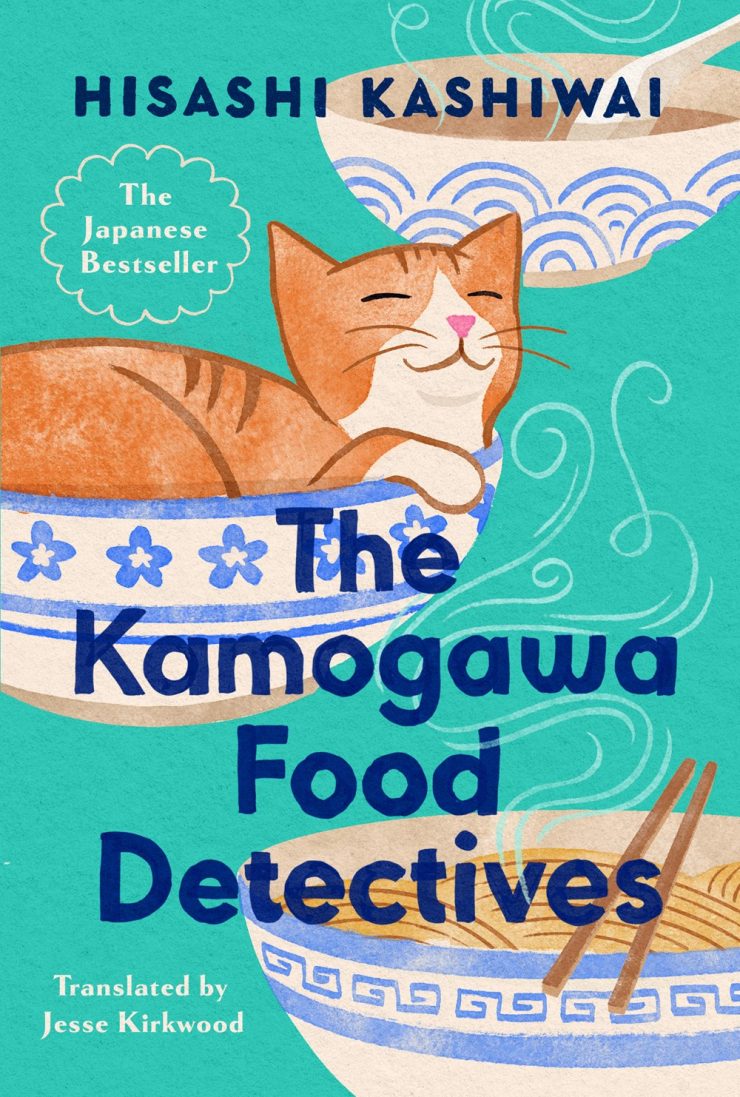Pros
- A refreshing premise for a series of short stories
- An emphasis and reminder of the emotional impact of food as more than just sustenance
- Relationship between father and daughter is fun
Cons
- Maybe a little too short on the details like the impact of the resolution of the case for the clients
The Kamogawa Food Detectives Review
The Kamogawa Food Detectives by Hisashi Kashiwai and translated by Jesse Kirkwood takes readers on a refreshing and lightly emotional journey of the impact fond food memories across a lifetime.
Upon first glance, the plot of the book is easily dismissible as unexciting or too mundane. After all, what’s the big deal with a dish eaten decades ago? But as it turns out, food can be a major emotional factor in people lives and especially in their memories. At least this is the case for the clients of the Kamogawa Food Detectives who operate from a fairly nondescript building that doubles, not surprisingly, as a restaurant.
The first short story of the collection, Nabeyaki-Udon, introduces not only the father-daughter duo of the detective agency, Koishi and Nagare, but it also establishes Nagare’s background as a former police detective, giving him the authority and credibility to be a food detective.
Nabeyaki-Udon also establishes the pattern by which the clients of the food detective agency discover the nondescript restaurant without signage: they come across a one-line advertisement in Gourmet Monthly that simply reads “Kamogawa Food Diner – Kamogawa Detective Agency – We Find Your Food.” There are no other clues or contact information, making it difficult for interested and potential clients to easily reach the detectives.
But that’s what gives the detective agency its charm and it’s what adds to the charm of the story. Only those who have an urgent food memory will expend the effort to locate the Kamogawas, and it is these highly motivated people whose stories readers get to hear.
Perhaps the most touching story in the collection is titled Tonkatsu, after a fairly simple and delicious Japanese dish consisting of rice, fried pork cutlet, egg, onions, and green onions. The patron and client, Suyako, hunts down the Kamogawas in order to discover the secret recipe of an ex-husband who only has a few more months to live.
Suyaku’s desire to share with her ex-husband this dish she loves reveals a heartbreaking story of classism and tradition, and Nagare’s discovery of the recipe and his sharp eye for details will leave readers feeling a pang of sympathy for a woman who has sacrificed much and lives with regret.
The Kamogawa Food Detectives by Hisashi Kashiwai is a great collection of short stories that will remind readers that food is just as much an important part of experiencing life that relationships are, and if the clients and their desperate search for that one food memory tells readers anything, it’s that we shouldn’t take the power of food for granted.
Read reviews of other great literature below.




[…] The Kamogawa Food Detectives by Hisashi Kashiwai […]